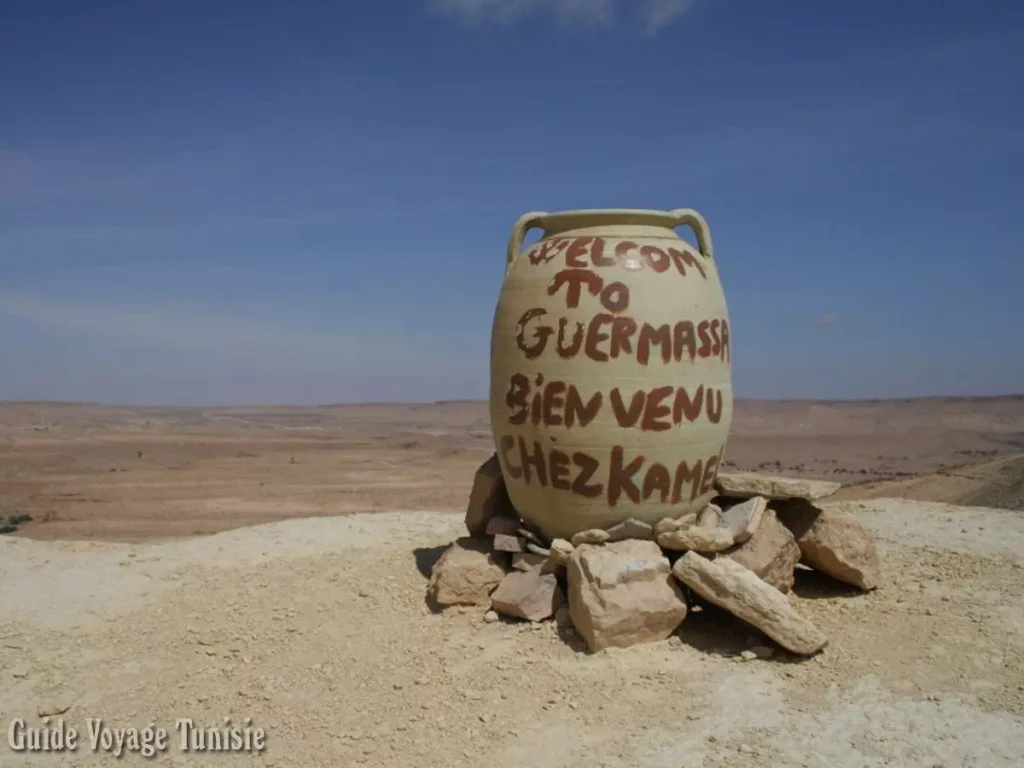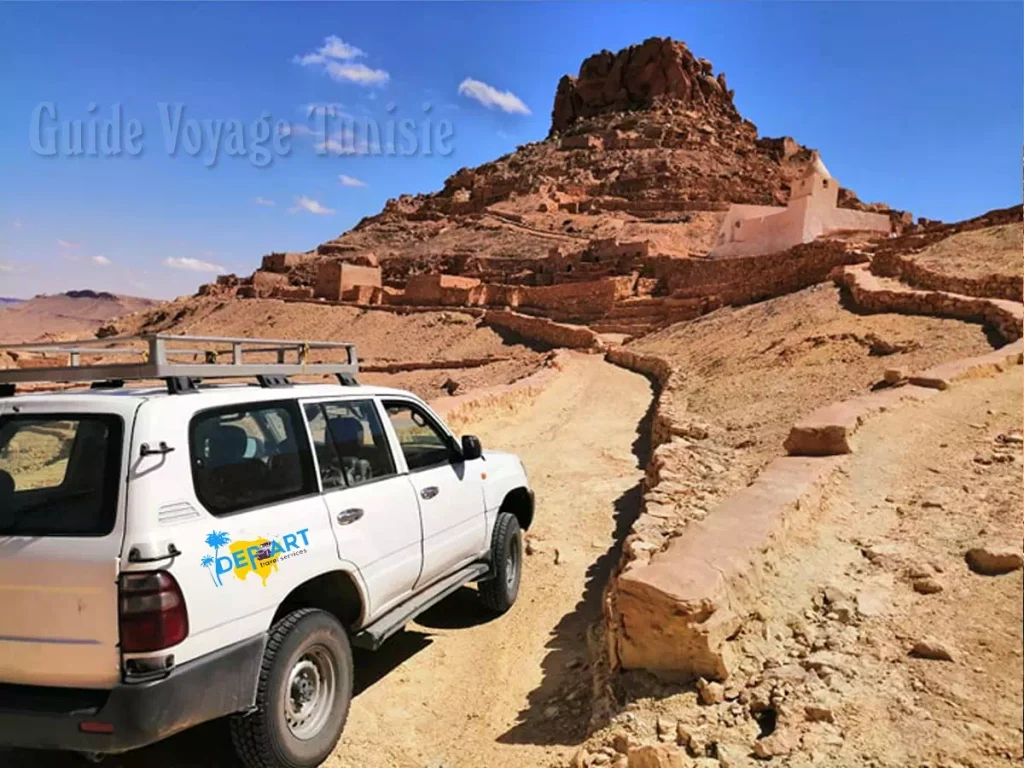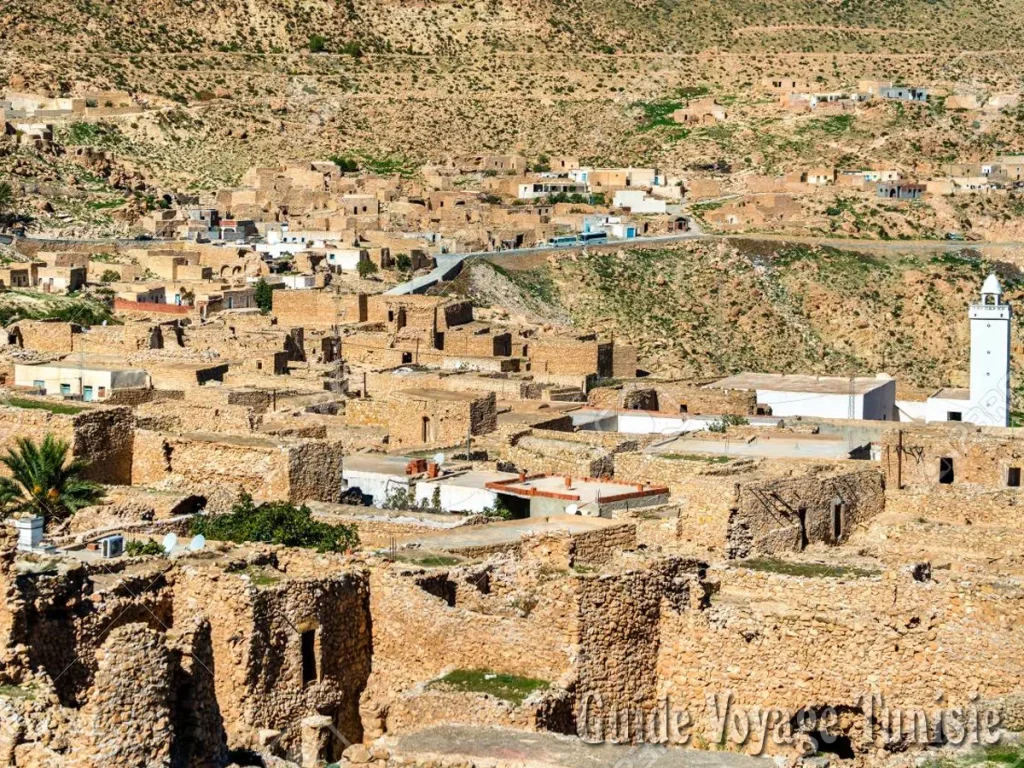Douiret Berber village
The Berber village of Douiret is a village in the south-east of Tunisia, located in the governorate of Tataouine, it is 20 kilometers from its capital.
It is divided into two parts: the old village, made up of troglodyte dwellings dug into the hills, and the new village located on the hillside.
The old village is made up of small dwellings, called ghiren (plural of ghar meaning cave), which bear the family name of their owner.
In 2008, only two families still live permanently in the old village, abandoned since 1974.
There are no more fields, the gutters draining rainwater are no longer maintained.
The ksar allowed the Berbers to maintain themselves while establishing clientele and protection relationships with the Arab tribes who arrived in the 11th century with the Hilalian invasions2. It is built on top of the mountain to fulfill several functions:
• military: ksar citadel or kalâa (fortress), it protects the village by serving as a place of refuge against enemies (observations from all directions from a site that is difficult to access);
• economic: collective granary for the use of one or more tribes, it makes it possible to preserve or store in the ghorfas the different crops (wheat, dates, olive oil, etc.) for years of drought. Small spaces arranged between the vault of two neighboring ghorfas make it possible to conceal valuable products.;
• social: meeting place to play a game called Jeu de Kharbga (variant of checkers game played with pebbles) and tell stories, it is also a place for commercial transactions.
The Berber village of Douiret was originally home to a rural mountain society. The populations who built this type of fortified villages (ksour) in the region are called the Jbaliya (mountain people).
The inhabitants of the new village are now Arabic speakers, speaking Tunisian with regional particularities specific to this southern region, and Berber speakers (chelha).
The Berber village of Douiret in pictures




